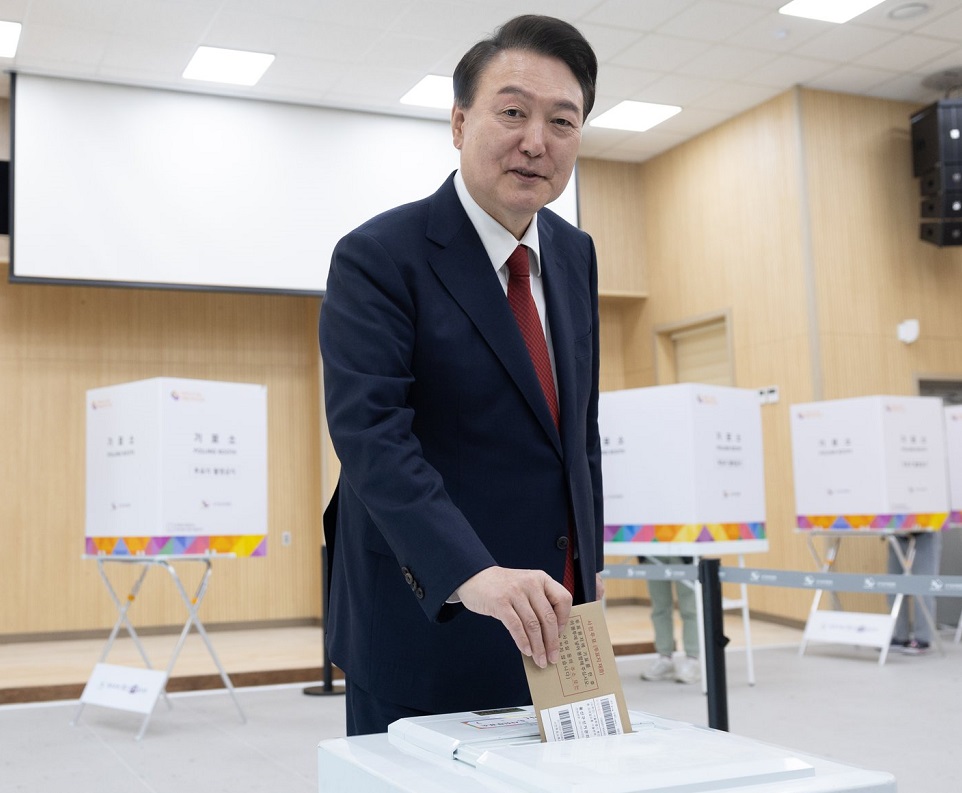South Korea’s parliamentary election, a 'referendum' on President Yoon
South Koreans go to the polls to elect the 300-seat National Assembly. This is a crucial test for the conservative president, who has had to bargain for votes in the Democratic Party-controlled legislature to pass his bills. Yoon arrives at the finish greatly weakened. The new Rebuilding Korea Party, which sees itself as a third force, is an unknown factor.
Seoul (AsiaNews) – South Koreans go to the polls tomorrow to renew the country’s National Assembly. For conservative President Yoon Suk-yeol, this is a crucial test. In 2022 he narrowly defeated Lee Jae-myung of the Democratic Party of Korea (DMK), but has had to deal with an opposition-controlled legislature ever since.
The latest surveys, from a week ago when a poll blackout kicked in, see the two main parties neck and neck, even though Yoon's popularity is now at its lowest, strongly impacted by rising food prices, a doctors' strike that has been going on for weeks, and a scandal involving his wife Kim Keon-hee over a US$ 2,200 luxury handbag gift.
For his part, Democratic Party leader Lee is dealing with bribery charges as well as a stabbing attack that put him in intensive care in January.
Some 44.28 million South Koreans are called to pick 300 new members of the National Assembly in 254 constituency seats and 46 elected by proportional representation.
Early voting is allowed in South Korea and more than 31 per cent of the electorate, including President Yoon, has already cast their ballot.
Although the existing election rules favour a two-party system, many observers are eager to see the results of the Rebuilding Korea Party (RKP), a new party created by Cho Kuk, former Minister of Justice in the Moon administration. Some polls give it 20 per cent of the vote, not far from Yoon's own People Power Party (PPP) and the DMK, both credited with more than 30 per cent.
During the campaign, the Catholic Bishops' Conference of Korea sent the parties a questionnaire, with the answers made public recently.
The two opposition parties are aiming for 200 seats combined, which would put the current president in serious jeopardy.
Whatever the outcome, it is not expected to have any major repercussions for the country’s foreign policy.
Under Yoon, South Korea has sought stronger ties with the United States and Japan, and the country’s institutional set-up gives the president ample room in foreign affairs.
12/02/2016 15:14







.png)










